Richard Daigle’s journey as an indie musician is one of resilience, passion, and rediscovery. A seasoned writer and editor by trade, Daigle’s musical story began as a child when he first picked up a guitar. A pivotal moment occurred when his mother mistook his amateur strumming for the radio, sparking his determination to learn and play. Though his early years were devoted to family life, tragedy became the catalyst for his artistry. After the loss of his wife to breast cancer in 2014, Daigle turned to songwriting as a form of therapy, weaving his experiences of grief, love, and life into deeply honest music.
Describing his style as a storyteller’s blend of humor and poignancy, Daigle credits influences like John Prine for shaping his outlook and sound. Now turning 70, Daigle is thriving in his “second act,” sharing his raw and heartfelt songs with audiences, proving it’s never too late to pursue your passion.
Can you tell us about your journey as an indie musician? What inspired you to pursue a career in music?
I worked as a journalist and writer/editor in my career so I’ve always been a writer. I began playing guitar around age 11 or 12 but didn’t really put the two together to write songs until late in life. I remember when I was 11 or so, didn’t know a single chord but was banging away on a little guitar we had around the house. I heard my mom call out “hey, turn the radio down!” I thought to myself, “wow! She thought that was real music!” That little comment really inspired me to play more and more, get a Mel Bay chord book, and figure out how to play.
My Dad played guitar and mandolin when he was young so he helped me, too. I played guitar for myself but didn’t really write songs since I was busy being a husband and Dad. That changed when my wife died from breast cancer in 2014. That experience, coupled with trying to navigate dating relationships as a senior, gave me lots of song writing material. Writing songs is therapy! Once I had some positive feedback on a few songs, I knew this was something I could do and I went for it, releasing my first album, “Average Joe,” in 2020. I write songs on a songwriting app on my iPad and I’m always getting ideas. Maybe one in ten of those ideas becomes a decent song but I’ll take those odds!
How would you describe your unique style and sound as an artist? What sets you apart from other musicians?
Just like many songwriters, I tell stories in my songs. They can be funny, poignant or downright sad…I just want to write honest songs that make people laugh, cry or think. What may set me apart is being a late-blooming artist. I’m one of many musicians in the Chattanooga area but I’m twice as old with half the experience of most of them! Because I started late, it’s still fresh to see the connection my songs make with a live audience. As for songwriting itself, I’m playing catch-up with so much life experience just now being distilled into songs.
I’m greatly influenced by John Prine but so are many other songwriters. Because I got to interview and have dinner with him around 1980 when he was young and me younger still, I saw how he was just a regular guy not at all caught up in his fame, which was really starting to blossom then. That attitude really resonates with me. I think the sentiment I express in my song “Average Joe” comes across in many of my songs—we’re all Average Joes, all put our pants on the same way and by and large we’re all doing the best we can to get through life.
Could you share some of the biggest challenges you’ve faced as an indie musician and how you overcame them?
I play lots of bars and restaurants and I typically play over half original songs and then Prine and other covers. Many times it’s not a listening crowd so if there are 50 people there and just two or three tables are actually listening, I play for those tables. Finding decent gigs with listening audiences and figuring out how to use social media effectively are constant challenges. I do what I can but I’m fortunate being retired with a regular monthly income so I don’t need music to pay bills. That’s not true for some of my full-time music friends.
What is your creative process like? How do you approach songwriting and composing music?
During the course of the day, riding in the car, at the store or whatever, I may hear a song lyric or something someone says on the news or what a friend may say, or maybe just come up with a random thought like “anything can happen anytime,” and I go with the flow in my head. It’s like pulling a thread and seeing what happens. By the way, I wrote “Anything Can Happen Anytime,” I’m playing it out and will record at some point. I keep a classical guitar I bought in Argentina on a stand in my den and I use it and my iPad to compose. I usually write lyrics first but usually as the words appear a melody comes as well. That’s just the first draft. The work begins in the rewrite process whether that’s words or the tune. For me, rewriting is shaping lyrics and melody like you’d work with clay.
Little by little it comes together and eventually, you hope anyway, a nice piece of art comes out that’s not an ashtray! It’s a challenge sometimes to know when to stop, when you’re done. I look at lyrics by Prine or other of my songwriting heros like Jason Isbell, John Fulbright, James McMurtry or John Moreland, marvel at their talent, and feel so small in comparison! (My earliest influences as a young teen were Cat Stevens, Peter, Paul and Mary and later, in college, Prine.) At the end of the day, I’m content being the best I can be knowing I’m not them. And when I see commercially successful songs out there with inane, silly lyrics, I feel a lot less small.
Are there any particular themes or messages that you aim to convey through your music? What inspires your lyrics?
I’m a middle child, had an older brother and sister and two younger brothers. My older brother died in 2019. As a middle child, you are a peacemaker, a kum by yah kind of person and that’s me. I’m try to find middle ground, try to find common humanity and I think that theme comes across in many of my songs. I’m a New Orleans-born Who Dat born on Mardi Gras, a full-blooded Cajun, and that heritage comes across in my songs as well. The life experience that really thrust me into songwriting was losing my wife. We were married 34 years and a loss like that is like losing your right arm and trying to figure out how to live in such a diminished state.
You can’t understand it unless you’ve been through it. I’m the type of person who likes to be places not only on time but early, replies to texts and emails quickly, pays bills on time, in general keeps all the ducks in a row. When I lost Jan, I was wandering around in my head, trying to recover. I started dating less than a year later and looking back, I think I was trying to fill a void that couldn’t be filled. As I wrote songs, many times I’d start with a storyline that turned into a man losing his wife or partner. “The Best Part” and “Sweetheart Souvenirs” are good examples. In one case, it was more literal. “Hey, It’s Me” is about listening to voice mails I had from her that I saved on a computer.
I lost my wife, my brother, both parents and several close high school friends so death and grief definitely are themes. At the same time, I have some funny songs like “She Said No,” “Carnivore” and “Squirrel For A Day” that provide great balance. I think my funny songs are just a funny as my sad songs are sad! “Squirrel” came about one day when I was feeling down, saw a squirrel in my yard, and started thinking about how life would be a squirrel. I don’t have it produced and recorded yet but it’s my most popular song when I play out in Chattanooga. In addition, I’ve had interesting life experiences from early memories with crawfishing and crabbing deep in Cajun country or on Grand Isle, to college memories working summers offshore 100 miles out in the Gulf of Mexico or later years making medical mission trips to Peru and Argentina with my wife. It all goes into the mix.
What are your long-term goals as an indie musician? Where do you see yourself and your music in the next few years?
I’m turning 70 this year so my long-term isn’t as long as most people! I want to just get the songs out there. I’ve never thought about commercial appeal or success when writing, I’m just putting out honest expressions of what’s in my head and heart. A great goal would be for an artist or TV or movie producer to hear a song and pick it up. I released two albums in 2024, “Cajun People” and “Gentle Man,” and I had a double-album release party where I invited around 20 local singer/songwriters to sing 20 of my songs. It was a magical night! I was blown away by some of the interpretations. I perform my songs the best I can but many of them would be more powerful in the hands of another artist. All I can ask though is to get listeners and let the songs speak for themselves. If they don’t quite connect on higher levels with people, well they at least had a chance.
Having said that, I really believe there’s an audience out there for my work. I know the people here who like what I do really like it a lot. That gives me hope. As for where I’ll see myself in a few years, the first goal is to remain alive and healthy! When I’m chopping onions or doing something with a knife, I’m careful. I value my fingers and can’t imagine not being able to play guitar.
Besides being alive and playing, a nice goal would be for a top artist to hear my work, give me a call and say “hey, can you open for me at The Ryman?” Naturally, I’d had to check my schedule to see I could fit it in. Ha ha! If that call ever did come, strangely enough, I think I’d feel comfortable on that stage just doing what I do and just being who I am. That’s enough for me and if I’m lucky, maybe enough for some others.


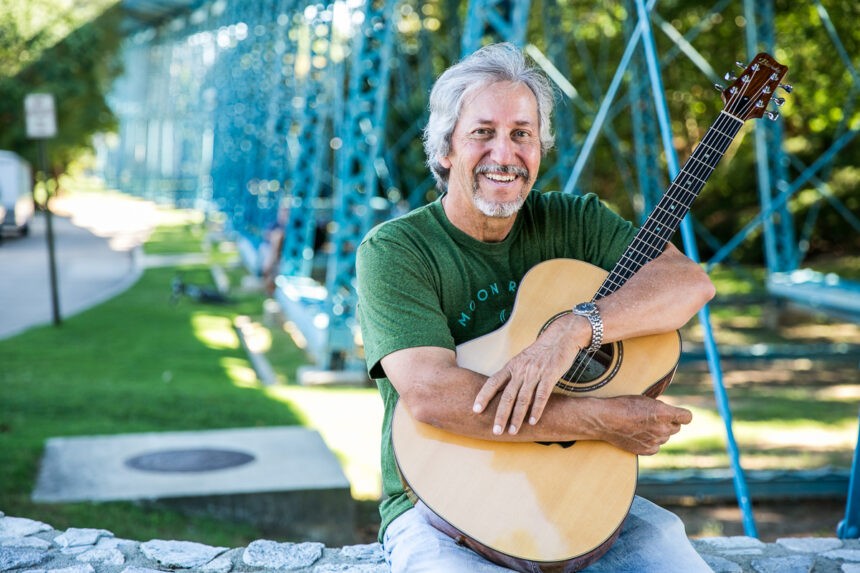
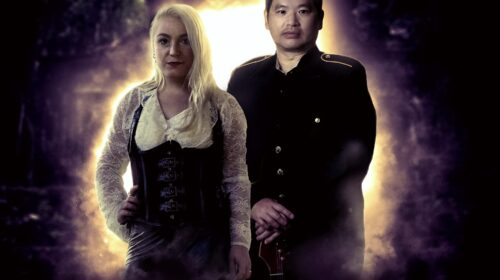
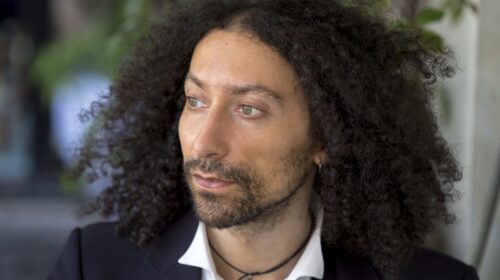

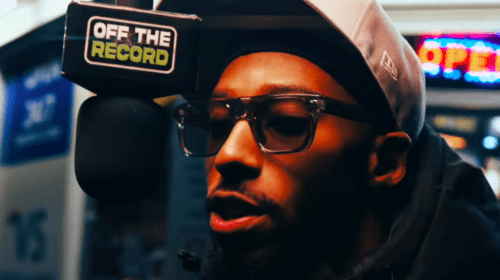
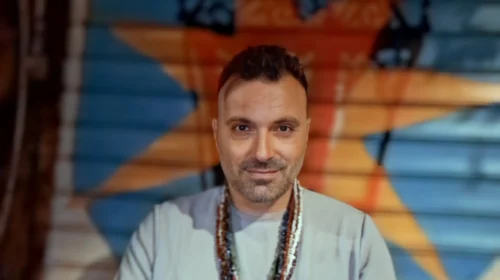
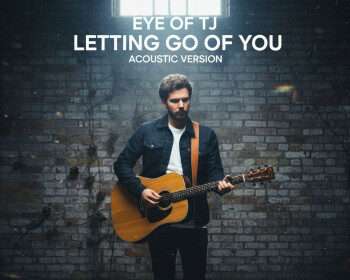
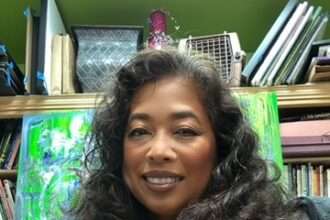
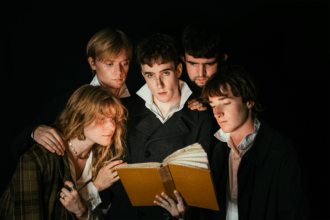
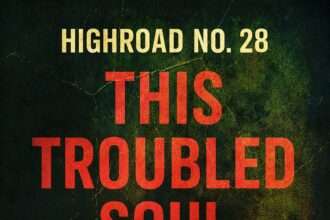
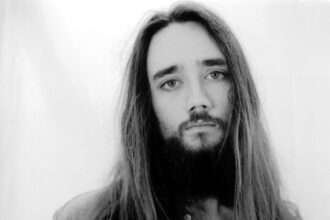


I really enjoyed reading about Richard. He and I are first cousins. I stayed in La and married a Cajun girl.
Richard and I would play together as kids. I even spent a summer at his house in Gretna as a college working to earn some college $.
Back then over 50 years ago, I could see the music in his being.
Good luck Richard. We may run into each other again.